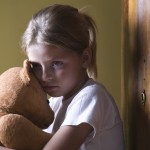
This new Cochrane systematic review finds that motivational interviewing has no effect on reducing alcohol-related problems or risky behaviours such as drunk driving in young people.
[read the full story...]Keeping you up to date with reliable child health research, policy & guidance

This new Cochrane systematic review finds that motivational interviewing has no effect on reducing alcohol-related problems or risky behaviours such as drunk driving in young people.
[read the full story...]
Lisa Burscheidt summarises a recent Cochrane review of psychotherapy for chronic pain in children and adolescents, which concludes that psychological therapies should be considered as a treatment, but better primary studies are needed to help steer pain management decisions.
[read the full story...]
In 2012 there was a call from Parliament to research school interventions to reduce body dissatisfaction. Helen Bould reports on an RCT of school-based prevention programme for eating disorders, which highlights the need for more work in this area.
[read the full story...]
Matt Field summarises the findings of a recent cluster RCT that uses internet-based prevention (an Australian programme called Climate Schools) to reduce alcohol and cannabis use, truancy, psychological distress and moral disengagement.
[read the full story...]
Fiona Warner-Gale presents the findings of a meta-analytic review of the Incredible Years Parent Training programme, which is found to be effective at modifying disruptive and prosocial child behaviour. This evidence will be of interest to many, including policymakers, planners and practitioners.
[read the full story...]
Lisa Burscheidt reports on a recent Cochrane review that looks at the effects of kinship care versus traditional foster care for the safety, permanency and well-being of children removed from the home for maltreatment.
[read the full story...]
Bullying is just not good for you. Here on Mental Elf, we’ve already picked some great examples of studies demonstrating this. André blogged about how bullied children are more likely to develop psychosis, and how bullies are at higher risk for teen pregnancy, and not so long ago, I told you how Wolke et al demonstrated that [read the full story…]

How many children develop Post Traumatic Stress Disorder (PTSD) after a traumatic experience such as an assault, a car crash, war or disaster? William Yule, one of the godfathers of child traumatic stress research, once pointed out that rates reported in separate studies varied from 0 to 100%. So what is on average the rate [read the full story…]

Major depressive disorder (MDD) is unfortunately a relatively common condition in children and adolescents. Depression is estimated to affect 2% of pre-pubertal children and 5-8% of adolescents (Son et al, 2000). As you might expect, depression has a significant negative impact on the development, functioning and risk for suicide in individuals affected, as well as [read the full story…]

Psychotic disorders, such as schizophrenia, are often conceptualised as arising from a complex interplay of genetic and environmental influences (Tandon 2008). The impact of social influences on the risk of psychotic experience is undeniable. Recent reviews of this topic have called for a focus on maternal wellbeing as a means of primary prevention for mental [read the full story…]